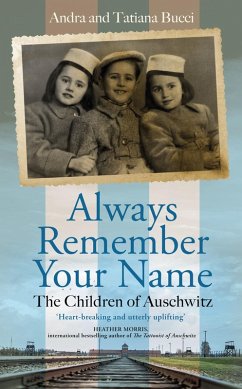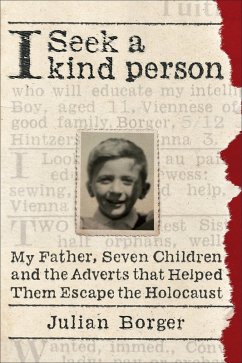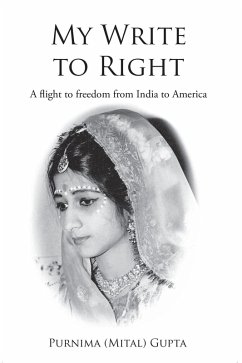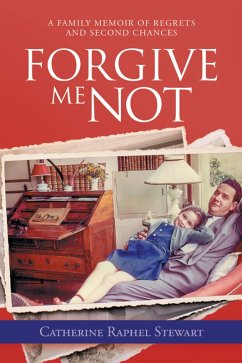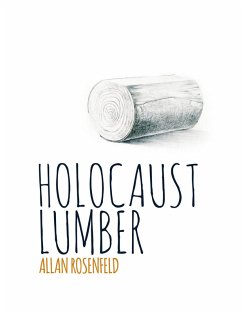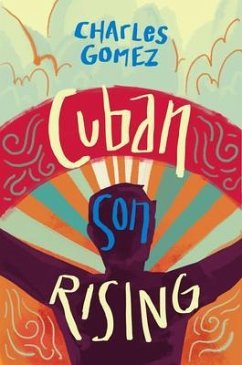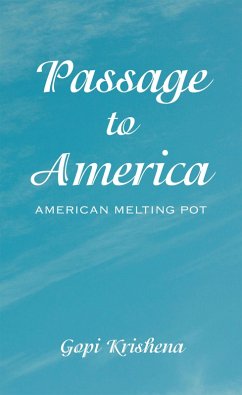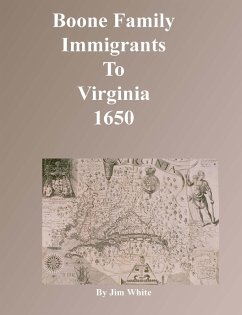
Your Ernst, Who Is Always Faithful to You (eBook, ePUB)
Letters from Another Time
Versandkostenfrei!
Sofort per Download lieferbar
2,99 €
inkl. MwSt.
Weitere Ausgaben:

PAYBACK Punkte
1 °P sammeln!
When she was growing up in Nazi Germany, Liselotte Peschel was fascinated with music, literature, and all things scientific and technical. Her bookkeeping job at a local telephone company brought her into contact with Ernst Roesch, a young apprentice eager to master the elements of his trade and bursting with his own ideas about the machines that he wanted to design and build.Their budding friendship seemed to be over when an official letter demanded that Ernst, a half-Jew, report to Gestapo headquarters in Munich early in 1945. Ernst's mother had already been sent away to the camp in Theresie...
When she was growing up in Nazi Germany, Liselotte Peschel was fascinated with music, literature, and all things scientific and technical. Her bookkeeping job at a local telephone company brought her into contact with Ernst Roesch, a young apprentice eager to master the elements of his trade and bursting with his own ideas about the machines that he wanted to design and build.
Their budding friendship seemed to be over when an official letter demanded that Ernst, a half-Jew, report to Gestapo headquarters in Munich early in 1945. Ernst's mother had already been sent away to the camp in Theresienstadt. Now he was shipped off to Wolmirsleben, a slave labor camp in northern Germany-where, early on, he decided that he'd do whatever he could to stay alive, and to keep in touch with the young woman he cared for.
At first, when he was still at Wolmirsleben, he sent her a postcard to wish her a Happy Easter. Later-after the camp was liberated, and after he was reunited with his mother and emigrated to America-he began writing letters to her regularly, sharing his thoughts and hopes for his future-one that he hoped would include her.
Their long-distance friendship took an unexpected turn when Ernst was drafted into the U.S. Army in 1951 and then sent to Berlin to work in military intelligence. Now, after a five-year hiatus, he had the chance to meet with her again face to face.
In these pages Steven Roesch uses his parents' correspondence from the 1940s and 1950s to tell the story of their early years.
Their budding friendship seemed to be over when an official letter demanded that Ernst, a half-Jew, report to Gestapo headquarters in Munich early in 1945. Ernst's mother had already been sent away to the camp in Theresienstadt. Now he was shipped off to Wolmirsleben, a slave labor camp in northern Germany-where, early on, he decided that he'd do whatever he could to stay alive, and to keep in touch with the young woman he cared for.
At first, when he was still at Wolmirsleben, he sent her a postcard to wish her a Happy Easter. Later-after the camp was liberated, and after he was reunited with his mother and emigrated to America-he began writing letters to her regularly, sharing his thoughts and hopes for his future-one that he hoped would include her.
Their long-distance friendship took an unexpected turn when Ernst was drafted into the U.S. Army in 1951 and then sent to Berlin to work in military intelligence. Now, after a five-year hiatus, he had the chance to meet with her again face to face.
In these pages Steven Roesch uses his parents' correspondence from the 1940s and 1950s to tell the story of their early years.
Dieser Download kann aus rechtlichen Gründen nur mit Rechnungsadresse in A, D ausgeliefert werden.




